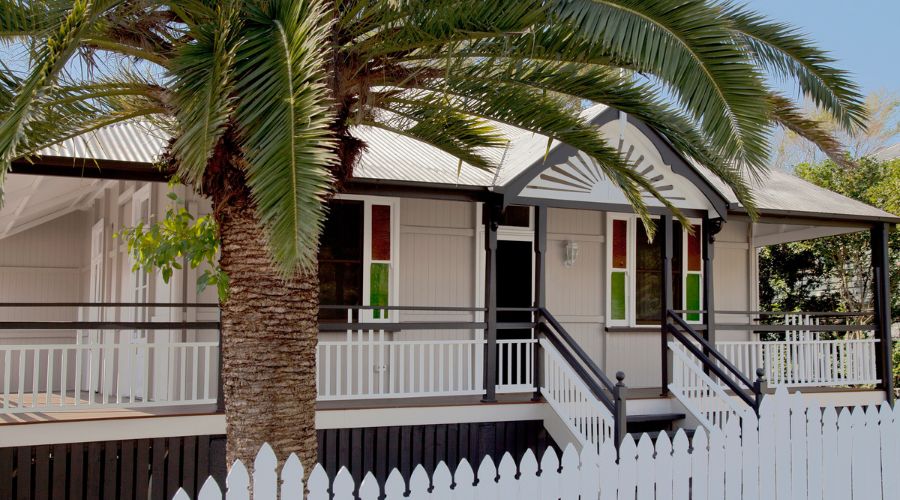Aged care costs can be expensive. And, you’ve been told that the only way to cover those costs is to sell the family home.
But what if you don’t want to sell the home? Are there other options?
In this article I’ll show you exactly how to avoid selling your home to pay for care while still affording aged care fees.
In This Article
Do I Need to Sell My Home to Pay for Aged Care?
You do not need to sell your home to pay for nursing home fees. Your home is your own and you should never feel forced to sell it. In fact, there are many advantages in retaining your home when moving into aged care, especially if you have loved ones who will continue to live in it. In saying that, aged care nursing home costs can be expensive and often, selling your home will be your only option if you do not have adequate funds elsewhere.
So, what are some ways that you can avoid selling your house to pay for care home fees?
How To Avoid Selling Your Home to Pay for Aged Care
There are a number of ways that you can avoid selling your home to cover aged care costs in Australia. Selling a house is a large financial decision that can have a significant impact on aged care costs and pension benefits.
Let’s take a look at 5 ways you can avoid selling your home to pay for care.
1. Sell Other Available Assets
Your family home can be favourably assessed for Centrelink and aged care purposes, which can not only minimise aged care fees, but also increase Age Pension entitlements. Therefore, it may be more beneficial to use other assets that are not favourably assessed, such as bank savings, shares, or superannuation to cover aged care costs before selling the family home.
2. Pay Less Towards the RAD
A Refundable Accommodation Deposit (RAD) is a lump sum bond that a nursing home will ask you to pay upon moving into care. You may even be told that you must pay the RAD in full. But, this is not true.
In addition to the RAD, there are other monthly fees payable, such as the basic daily fee, means tested care fee and additional services fee.
Each aged care facility will have different RAD amounts, ranging from around $300,00 to over $1M, usually based on the quality of the aged care facility.
What many people don’t realise is that you do not have to pay the full RAD amount. In fact, you don’t need to make any lump sum payment towards the RAD. You might decide to contribute nothing towards the RAD upon entry, but make a payment towards it at some point in the future – that’s okay, too. However, you will need to pay an interest rate repayment on any RAD amount that is left unpaid.
Related Article: How To Not Pay a Nursing Home Bond
3. Borrow Funds from Family
Often, one of the main reasons for retaining the family home, particularly if a spouse will not continue to live in it, is so that your children will inherit it – for sentimental and/or financial reasons.
If the reason for not selling the home is for the benefit of the family, then maybe borrowing funds from family members to assist in covering aged care costs could be considered as an option. However, such an arrangement needs to be done very carefully, because borrowing funds from family can have estate planning issues, family conflicts, or result in more assets being assessed for Centrelink and Aged Care assessment purposes.
Seeking professional financial and legal advice in this instance is highly recommended.
4. Borrow Against Your Home
In our experience, the majority of people moving into aged care have an unencumbered home. Therefore, you might be eligible to apply for a reverse mortgage or the Government’s Home Equity Access Scheme.
Borrowing against your home can provide you with the funds necessary to meet aged care costs and avoid needing to sell your home to pay for care.
There are a number of risks and considerations associated with reverse mortgages and you should understand the implications of these prior to entering into such an arrangement. Again, seeking professional advice is highly recommended.
5. Move Into a Different Aged Care Home
You may be feeling the pressure of needing to sell your home because the nursing home you have chosen has a rather high Refundable Accommodation Deposit (RAD) amount, as well as potential additional services fees.
In order to avoid selling your home to cover aged care costs, you might consider a care home with a lower RAD amount and with little or no additional services fees.
6. Reduce Assessable Assets and Income
There are dozens of aged care strategies available to reduce Centrelink and aged care assessment of your income and assets, which not only lowers aged care costs, but can also significantly increase any Age Pension or DVA entitlements.
By structuring your income and assets in a more favourable way, you might be able to avoid selling your house and still afford care home fees.
Related Articles: Protecting Assets from Nursing Home Costs
Should You Sell Your Home To Pay for Aged Care?
It’s important to never need to make a rush decision in relation to keeping or selling your home. Your decision should be well thought out, with all implications considered.
In our experience, we see too many people think that they are doing the right thing by selling their home to fund care home costs prior to seeking professional advice and then being left with the burden of much higher aged care fees, lower Age Pension entitlements and no longer having a house they wished they’d kept.
It’s important to understand that selling the home is not your only option. There are other options. You should also know that advice from staff at the nursing home, a placement consultant or Centrelink representative should not be considered professional advice. These people are not qualified to provide personal advice and may have a conflict of interest.
At Core Value Aged Care Advice we will help you navigate the complexities of aged care and find the best financial solutions for your family. If you have any questions or concerns regarding your situation, please call us on 1300 944 011 or contact us here to speak to an expert aged care expert.
Articles You Might Also Like:
- How To Avoid Selling Your House To Pay for Care
- Does the Family Home Count as an Asset for Aged Care?
- Aged Care Family Home Exemption
- Renting Home To Pay for Aged Care

Hi, I hope you found this article useful.
If you wish to discuss your situation and what strategies may be of benefit please contact us here
Thanks - Shane


